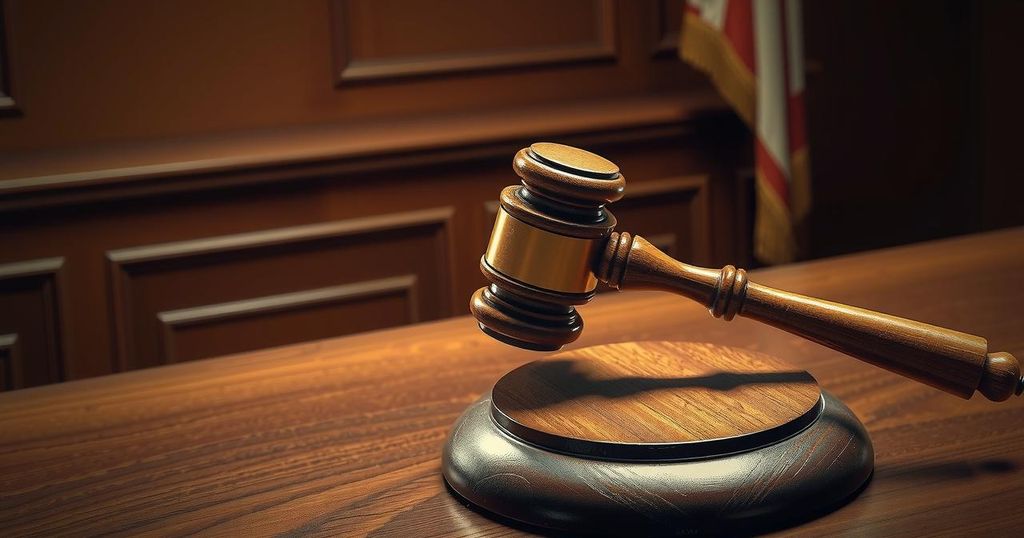Bolsonaro Denies Coup Plot but Acknowledges Discussing Alternative Ways to Stay in Power
Jair Bolsonaro denies a coup plot at his Supreme Court trial, but admits to discussing options to retain power after losing the 2022 election. He explored measures like military intervention, yet maintains these do not constitute a coup. The trial features significant figures from his administration, raising questions about political accountability in Brazil, especially among military leaders. A verdict is anticipated later this year.
Jair Bolsonaro, Brazil’s former president, has firmly denied any involvement in a supposed coup plot during his trial at the Supreme Court. However, he did acknowledge that he participated in discussions exploring “alternative ways” to remain in power following his defeat in the 2022 presidential election to Luiz Inácio Lula da Silva. In a tense two-hour questioning session, Bolsonaro stated, “We studied other alternatives within the constitution.”
The discussions, he claimed, contemplated various drastic measures, like deploying military forces and restricting civil liberties. But Bolsonaro insisted that these discussions should not be classified as a coup attempt. He emphasized, “A coup is something abominable. A coup may even be easy to start… Brazil could not go through something like that.” He maintained that despite considering a state of siege, no practical steps followed because the situation did not warrant such actions.
Bolsonaro’s comments come amidst a crucial trial involving eight key figures accused of orchestrating an attempted coup. This includes four former ministers, three of whom are army generals, as well as the ex-navy commander and Bolsonaro’s former aide-de-camp, Lt. Col. Mauro Cid. The testimony has faced scrutiny, especially given its historical significance as high-ranking military personnel have rarely faced legal consequences for such matters in Brazil.
Adding a personal touch to the proceedings, Bolsonaro took the opportunity to defend his administration from 2019 to 2023 while criticizing Lula’s current administration. His exchange with Justice Alexandre de Moraes, the trial’s presiding judge, included an unexpected apology. Bolsonaro expressed regret for previously labeling Moraes and other justices as having received large bribes to manipulate election outcomes, stating, “I had no intention of accusing you of any misconduct.”
In a light-hearted moment, he even jokingly invited Moraes to be his running mate for the 2026 elections, to which the justice responded with a smile, “I’ll pass.” The court has entered a critical phase, highlighted by former aide Lt. Col. Cid’s testimony, who discussed drafts of a decree that proposed arresting multiple officials and setting up new elections. He noted that Bolsonaro had amended the document, suggesting it was more focused on maintaining control rather than fair governance.
As the trial proceeds, there is a lot on the line. Following the witnesses’ testimonies, both the defense and prosecution will have a brief window to request additional evidence collection. The outcome could establish precedents in Brazilian political and legal history, particularly concerning the accountability of military officials and former presidents.
With the final verdict expected later this year, eyes are on the court’s proceedings as they unfold, indicating the complex interplay between Brazil’s political future and its troubled past.
In summary, Jair Bolsonaro stands accused amid serious allegations concerning coup discussions following his electoral defeat. His denial of a coup plot, despite admitting to exploring alternative measures, presents a contentious legal battle. This trial marks a pivotal moment in Brazil’s political landscape, highlighting historical accountability and governance issues. As we await the court’s verdict, the implications of this trial could heavily influence Brazil’s democratic integrity.
Original Source: www.theguardian.com




Post Comment